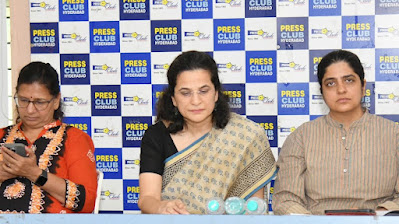Meghalaya Monitor: Shillong: Wednesday, April 30, 2025.
The state Chief Information Commissioner (CIC) Rebecca Suchiang, who assumed office on Thursday, wants to reach out to the marginalised so that the right to information is accessible to them.
“I intend to strengthen outreach to the rural and marginalised communities so that the right to information is not just available but is accessible to all”, she said in response to a question on her priorities.
Suchiang, who is the first woman RTI chief, said another task is to dispose of pending cases.
Ensuring transparency and accountability besides bridging the gap between the citizens and the government, timely disposal of complaints and appeals, improving public awareness on RTI Act and enhancing institutional capacity through training are other priorities.
She was sworn in as the CIC at a ceremony held at Raj Bhavan by Governor CH Vijayashankar, in the presence of state government officials and the CIC’s family members.
The function started with the National Anthem, followed by reading of the official notification by Commissioner Secretary, Department of Arts and Culture, FR Kharkongor, who announced Suchiang’s appointment.
She will serve a three-year term.
Earlier, she had held the post of Director General of Meghalaya Administrative Training Institute after she retired as Chief Secretary.
The state Chief Information Commissioner (CIC) Rebecca Suchiang, who assumed office on Thursday, wants to reach out to the marginalised so that the right to information is accessible to them.
“I intend to strengthen outreach to the rural and marginalised communities so that the right to information is not just available but is accessible to all”, she said in response to a question on her priorities.
Suchiang, who is the first woman RTI chief, said another task is to dispose of pending cases.
Ensuring transparency and accountability besides bridging the gap between the citizens and the government, timely disposal of complaints and appeals, improving public awareness on RTI Act and enhancing institutional capacity through training are other priorities.
She was sworn in as the CIC at a ceremony held at Raj Bhavan by Governor CH Vijayashankar, in the presence of state government officials and the CIC’s family members.
The function started with the National Anthem, followed by reading of the official notification by Commissioner Secretary, Department of Arts and Culture, FR Kharkongor, who announced Suchiang’s appointment.
She will serve a three-year term.
Earlier, she had held the post of Director General of Meghalaya Administrative Training Institute after she retired as Chief Secretary.















.jpeg)














































































